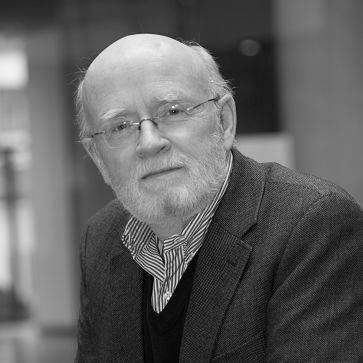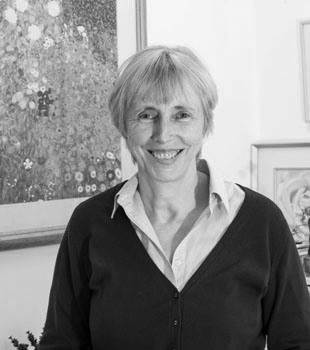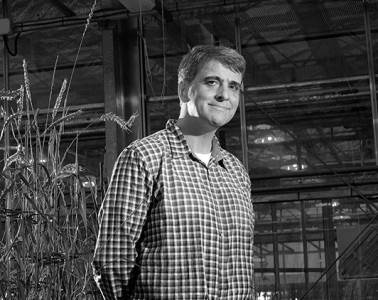Plenary Lectures Winners 2018
Each year at the SEB Annual Meeting, we honour George Parker Bidder and Harold Woolhouse with two major plenary lectures at the meeting. These lectures, along with the Cell Biology Plenary Lecture, are given by scientists prominent in their field and are nominated by the committees of their respective sections.
This year's Plenary Lecturers are:
Bidder Lecture - Hans-Otto. Portner (Alfred Wegener Institute, Germany)
Woolhouse Lecture - Caroline Dean (John Innes Centre , UK)
Cell Biology Plenary Lecture - Malcolm Bennett ( University Of Nottingham, UK)
BIDDER LECTURE - HANS-OTTO.PORTNER

Hans-O. Pörtner studied at Münster and Düsseldorf Universities where he received his PhD and habilitated in Animal Physiology. As a Research and then Heisenberg Fellow of the German Research Council he worked at Dalhousie and Acadia Universities, Nova Scotia, Canada and at the Lovelace Medical Foundation, Albuquerque, NM. Currently he is Professor and Head of the Department of Integrative Ecophysiology at the Alfred Wegener Institute for Marine and Polar Research, Bremerhaven, Germany. He acts as an associate editor “Physiology” for Marine Biology and as a co-editor of the Journal of Thermal Biology. He was Honorary International Associate Member of the Society for Integrative Biology, USA, between 2006 and 2013.
Until 2005 he served as Lead Author on the Special Report “Carbon Capture and Storage” of IPCC (Intergovernmental Panel on Climate Change, AR4). Until 2014 he served as a Coordinating Lead Author of IPCC WGII AR5, chapter 6, Ocean Systems and as a member of the author teams for the WGII Summary for Policymakers and Technical Summary, as well as a member of the Core Writing Team for the IPCC AR5 Synthesis Report. In October 2015 he was elected Co-Chair of Working Group II of the IPCC. His research interests include the effects of climate warming, ocean acidification, and hypoxia on marine animals and ecosystems with a focus on the links between ecological, physiological, biochemical and molecular mechanisms limiting tolerance and shaping biogeography and ecosystem functioning.
WOOLHOUSE LECTURE - CAROLINE DEAN

Caroline Dean has been a project leader at the John Innes Centre, Norwich since 1988. Her group has focused on understanding the molecular controls used by plants to judge when to flower, focusing on response to prolonged cold. The process, known as vernalization, has enabled her to address fundamental questions about how cells perceive temperature, how they extract signals from noisy temperature profiles, and how that is epigenetically remembered throughout the subsequent development. Modulation of this mechanism has contributed to adaptation of Arabidopsis to its wide geographical range.
Caroline did her PhD at the University of York, and then spent 5 years as a post-doctoral research fellow in a biotech company (Advanced Genetic Sciences) in California, before returning to the UK. She served as Associate Research Director of the John Innes Centre (1999-2008) was elected to EMBO in 1999, Fellow of the Royal Society in 2004, and US National and German Leopoldina Academy in 2008 and in 2012 was selected as a Non-Resident fellow of Salk Institute, La Jolla, USA. She was awarded an OBE in 2004, a BBSRC Excellence in Bioscience award in 2014, FEBS/EMBO Woman in Science award in 2015, Royal Society Darwin medal and appointed Dame Commander in 2016.
CELL BIOLOGY PLENARY LECTURE - MALCOLM BENNETT

The hidden half of plant biology has been an enduring interest throughout Malcolm Bennett’s research career. Over the last several decades his team has characterised many of the regulatory signals, genes and mechanisms that control root growth and development. Highlights include identifying the first auxin transport protein described in plants termed AUX1 which controls root gravitropism and elucidating how plant roots respond to gradients of water availability (termed hydrotropism).
Over the last decade, Malcolm has embraced a systems biology approach to study root development, helping establish the BBSRC/EPSRC Centre for Plant Integrative Biology (CPIB) at Nottingham. Highlights include elucidating how hormones like auxin control root growth and branching. Recognising the importance of studying root responses in their natural soil environment, Malcolm has recently led efforts at CPIB to non-invasively image root responses using X-ray based microCT. A BBSRC Professorial Research Fellowship (2010) and ERC Advanced Investigator (2012) awards have enabled Malcolm and colleagues to build a multidisciplinary research team and a unique research platform termed the Hounsfield Facility to achieve this goal. Highlights include discovering a novel root adaptive response in soil termed hydropatterning, where roots only branch when in contact with water.
Malcolm has published over 180 research papers and review articles about root growth and development and is ranked among the most highly cited animal and plant biologists. His research activities have attracted several awards including a Royal Society Wolfson Research Fellowship (2013) and election as a member of EMBO (2014).
The 2022 Annual conference will take place in Montpellier social distancing measures will be implemented throughout the venue. Please click here to view the requirements for Montpellier before you travel.
